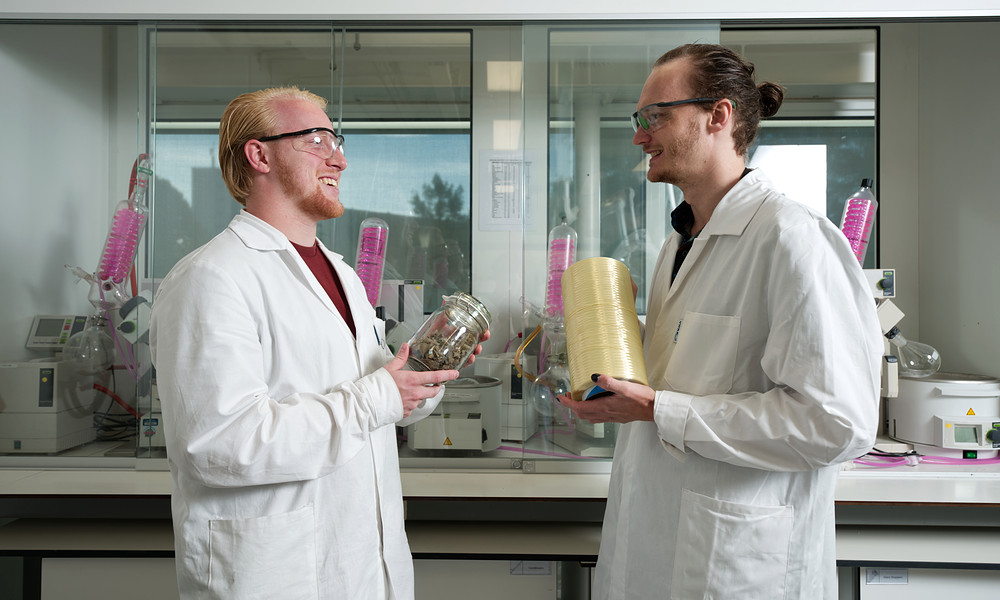PLACE investigates recyclingpotential of polylactic acid
- Research project

PLA, or polylactic acid, is one of the most widely used plastics. It is often made from plant-based raw materials, such as sugarcane. The aim of this project is to gather knowledge on the recycling potential of PLA.
During the recycling process, it is important that the material does not lose important properties, such as strength and malleability. The aim of this project is to map the whole waste sorting and preparation process to better understand the practical implications of PLA recycling.
This project looks at both chemical and thermochemical recycling of PLA materials. This would close the PLA loop in several ways. After all, PLA is biodegradable, but only under specific conditions. In seawater, for example, PLA does not break down well. Finding better ways to recycle PLA into new products will make the material more attractive for commercial applications. With the knowledge from this project, we are working on a future scenario in which plastics are made by a mix of recycling and production of new plastics from renewable sources such as biomass.
From Hanze UAS, Professor Biobased Chemistry and Refinery André Heeres will research the topic of (bio)chemical modifications of biomass streams and synthesis of materials from biomass. Under the leadership of André Heeres, the Hanze contributes to the following work packages:
How satisfied are you with the information on this page?